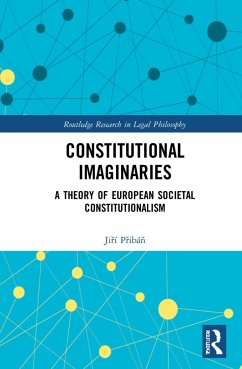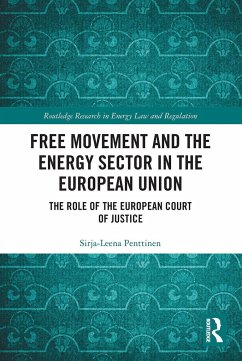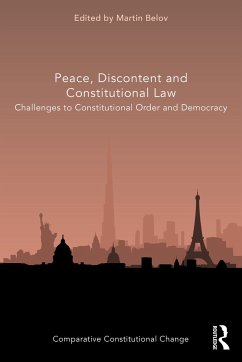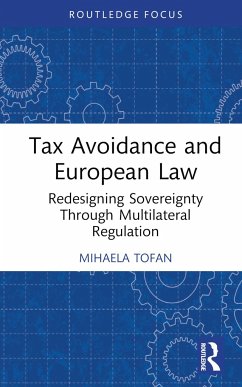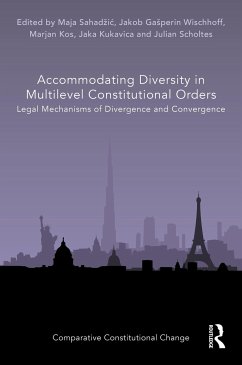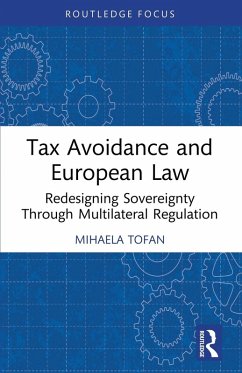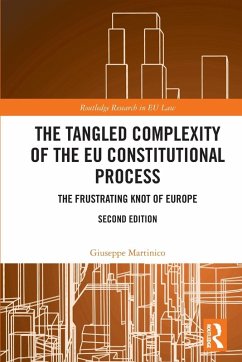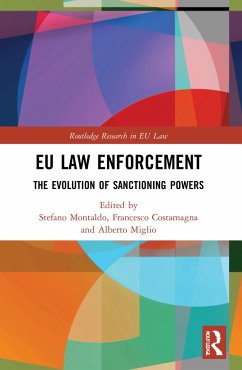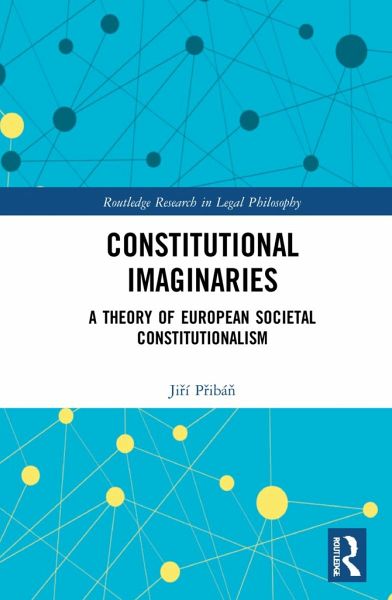
Constitutional Imaginaries
A Theory of European Societal Constitutionalism
Versandkostenfrei!
Versandfertig in 6-10 Tagen
45,99 €
inkl. MwSt.
Weitere Ausgaben:

PAYBACK Punkte
23 °P sammeln!
This book offers a social theoretical analysis of imaginaries as constituent social forces of positive law and politics.Constitutional imaginaries invite constitutional and political theorists, philosophers and sociologists to rethink the concept of constitution as the normative legal limitation and control of political power. They show that political constitutions include societal forces impossible to contain by legal norms and political institutions. The constitution of society as one polity defined by the unity of topos-ethnos-nomos, that is the unity of territory, people and their laws, in...
This book offers a social theoretical analysis of imaginaries as constituent social forces of positive law and politics.
Constitutional imaginaries invite constitutional and political theorists, philosophers and sociologists to rethink the concept of constitution as the normative legal limitation and control of political power. They show that political constitutions include societal forces impossible to contain by legal norms and political institutions. The constitution of society as one polity defined by the unity of topos-ethnos-nomos, that is the unity of territory, people and their laws, informed the rise of modern nations and nationalisms as much as constitutional democratic statehood and its liberal and republican regimes. However, the imaginary of polity as one nation living on a given territory under the constitutional rule of law is challenged by the process of European integration and its imaginaries informed by transnational legal and societal pluralism, administrative governance, economic performativity and democratically mobilised polity. This book discusses the sociology of imagined communities and the philosophy of modern social imaginaries in the context of transnational European constitutionalism and its recent theories, most notably the theory of societal constitutions. It offers a new approach to the legal constitutions as societal power formations evolving at national, European and global levels.
The book will be of interest to scholars and students interested in constitutional and European law theory and philosophy as much as interdisciplinary and socio-legal studies of transnational law and society.
Constitutional imaginaries invite constitutional and political theorists, philosophers and sociologists to rethink the concept of constitution as the normative legal limitation and control of political power. They show that political constitutions include societal forces impossible to contain by legal norms and political institutions. The constitution of society as one polity defined by the unity of topos-ethnos-nomos, that is the unity of territory, people and their laws, informed the rise of modern nations and nationalisms as much as constitutional democratic statehood and its liberal and republican regimes. However, the imaginary of polity as one nation living on a given territory under the constitutional rule of law is challenged by the process of European integration and its imaginaries informed by transnational legal and societal pluralism, administrative governance, economic performativity and democratically mobilised polity. This book discusses the sociology of imagined communities and the philosophy of modern social imaginaries in the context of transnational European constitutionalism and its recent theories, most notably the theory of societal constitutions. It offers a new approach to the legal constitutions as societal power formations evolving at national, European and global levels.
The book will be of interest to scholars and students interested in constitutional and European law theory and philosophy as much as interdisciplinary and socio-legal studies of transnational law and society.





